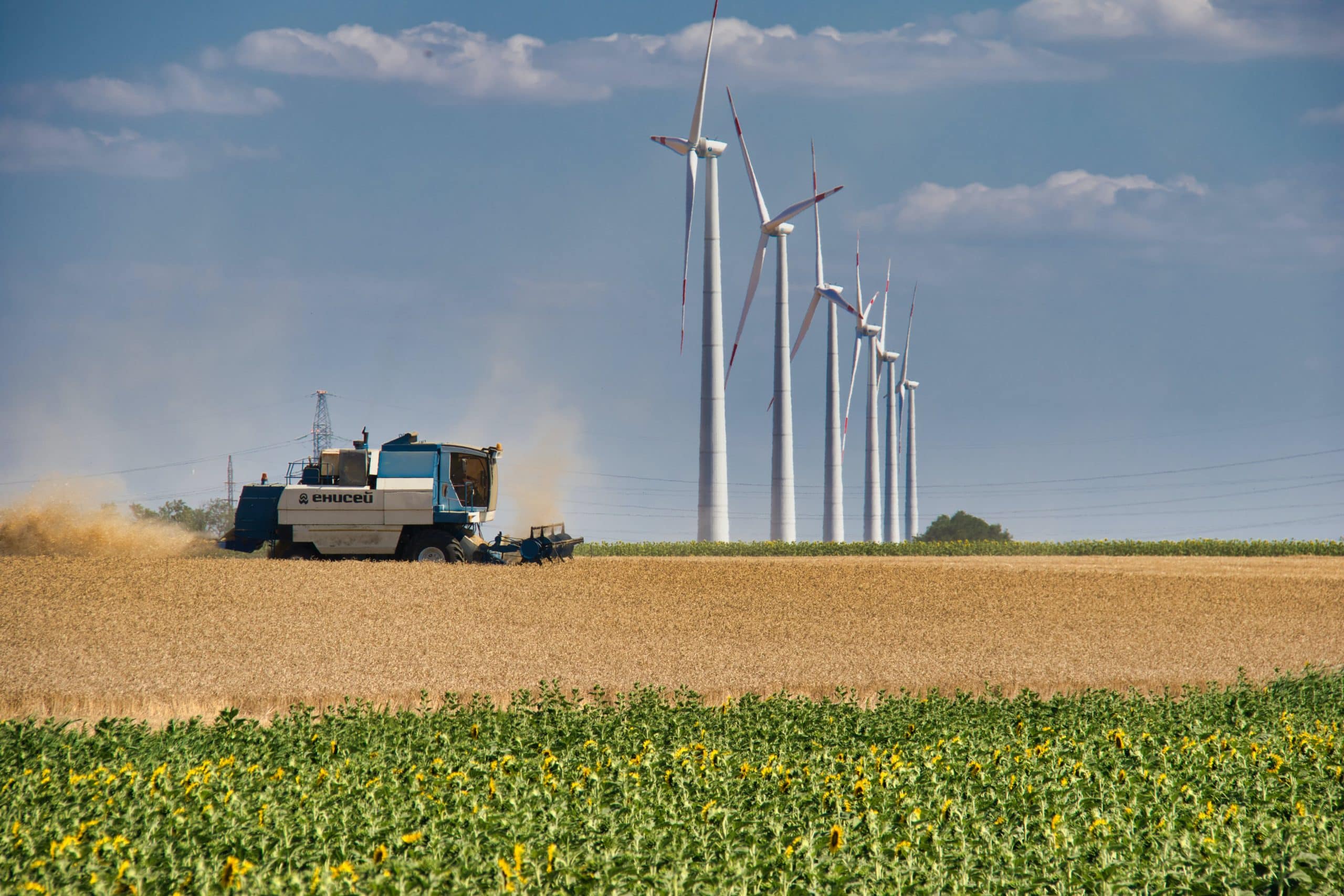What Are the Emerging High-Tech Solutions for Sustainable Agriculture?

As we face global challenges like climate change, population growth, and finite resources, the need for sustainable solutions in every sector becomes more apparent. The agriculture industry, for instance, is a pivotal player in these global scenarios. With the increasing demand for food, the pressure on farmers to produce more and better crops while respecting the environment intensifies. Thankfully, the rapid progression of technology in various fields is also impacting agriculture. This article will discuss some of the most exciting high-tech solutions for sustainable farming, including data-driven technologies, energy-efficient practices, and water-saving measures.
Data-Driven Technologies in Farming
Data has become a cornerstone of modern society, and the agriculture industry is no exception. Farmers are turning to data-driven technologies to manage their crops more efficiently and sustainably.
Sujet a lire : The best gourmet addresses in Singapore: a roundup of must-try restaurants
Precision agriculture, for example, involves collecting and analyzing data on various crop-related factors, such as soil conditions, weather patterns, and plant health. Satellite imagery, drones, and sensors are often used to gather this data, providing real-time, accurate insights. Farmers can then use this information to make informed decisions about when to plant, irrigate, and harvest, enabling them to optimize resource usage and minimize waste.
Another promising data-driven technology is predictive analytics. By analyzing historical and real-time data, these systems can forecast future conditions and events, from weather changes to pest infestations. This allows farmers to take preventative measures and adapt their practices, increasing crop yields while reducing the need for harmful pesticides and excess water usage.
A lire également : Maximize your decor with the ubtle power of grey tiles
Energy-Efficient Practices
The agriculture sector is one of the largest energy consumers globally. However, with the rise of sustainable technology, farmers are now able to seek out more energy-efficient practices.
Solar technology is a major game-changer in this respect. Many farmers are installing solar panels on their land or buildings, generating clean, renewable energy to power their operations. Solar-powered irrigation systems, for instance, can pump water from wells or reservoirs without consuming traditional electricity. Also, solar-powered cold storage units can preserve harvested crops without relying on the conventional power grid.
Bioenergy is another sustainable energy solution for agriculture. Farmers can produce bioenergy by converting agricultural waste like crop residues and manure into methane gas, which can then be used to generate electricity. This not only provides a renewable energy source but also helps manage waste and reduce greenhouse gas emissions.
Water-Saving Measures
Water is a vital resource in agriculture, but it’s also a finite one. With fresh water scarcity becoming an increasing global concern, agriculture must find ways to use water more sustainably.
In this context, technology plays a crucial role. Advanced irrigation systems, for example, use sensors and GPS mapping to determine the exact amount of water needed by each plant or crop area, vastly reducing water waste. Some systems even utilize weather data to adjust watering times and volumes based on anticipated rainfall.
Another technology making waves is hydroponics. This method grows plants without soil, instead using a nutrient-rich water solution. Hydroponics requires significantly less water than traditional farming, as the water in the system can be reused and the lack of soil reduces evaporation.
Innovative Crop Management Techniques
As the world’s population grows, so does the demand for food. To meet this demand sustainably, farmers are adopting innovative crop management techniques powered by technology.
Vertical farming, for instance, is a method where crops are grown in stacked layers, often in controlled environments like buildings or shipping containers. This technique can drastically increase yield per square foot, making it an effective solution for urban farming. Additionally, because it’s indoors, vertical farming can reduce the need for pesticides and is less affected by weather changes.
Another innovative technique is precision gene editing. This technology allows scientists to make precise changes to a plant’s genetic material, improving traits like drought tolerance or pest resistance. By developing crops that are better suited to challenging conditions, this technique can contribute to sustainable agriculture by reducing the need for resources like water and pesticides.
Technology for Soil Health
Healthy soil is the foundation of sustainable agriculture, and technology is helping farmers ensure their land remains fertile and productive.
For instance, soil sensors can monitor factors like moisture levels, temperature, and nutrient content, providing farmers with valuable information about their soil’s condition. With this data, farmers can make adjustments to their practices, such as applying fertilizer more efficiently, improving crop health and yield.
In addition, ag-tech companies are developing technology to enhance soil health directly. One example is biochar, a type of charcoal that can be added to soil to increase its ability to retain water and nutrients. Another is the use of microorganisms to improve soil fertility and crop growth, a practice known as biological farming.
Combined, these high-tech solutions offer promising alternatives to traditional farming practices, playing a crucial role in the transition to a more sustainable agricultural industry.
Machine Learning and Artificial Intelligence in Agriculture
Machine Learning (ML) and Artificial Intelligence (AI) are revolutionizing numerous industries, and agriculture is no different. These technologies are helping create smart farms, where operations are guided by data, real-time monitoring, and intelligent decision-making.
AI and ML can analyze vast amounts of data from various sources, like weather forecasts, soil sensors, and farm equipment, to provide actionable insights. For instance, machine learning algorithms can predict crop yields based on historical data and current conditions, allowing farmers to plan their harvesting and marketing strategies more effectively.
Computer vision, a subset of AI, is being employed in tasks such as crop monitoring and livestock management. With the help of drones or ground-based robots equipped with cameras, computer vision technology can identify diseases, pests, or nutrient deficiencies in crops, enabling early intervention. Similarly, in livestock management, it can monitor animal health and behavior, aiding in disease detection and overall herd health.
AI-powered predictive analytics can forecast weather changes, pest infestations, and disease outbreaks, enabling farmers to take preventative measures. This not only increases crop yields but also reduces reliance on harmful pesticides and excessive water usage, contributing to sustainable farming.
Moreover, AI can also aid in farm management by automating routine tasks, optimizing resource allocation, and improving logistics and supply chains. This technology transfer is helping farmers increase productivity and profitability, while maintaining the balance with the environment.
Conclusion: The Future of Sustainable Agriculture
The future of agriculture lies in harnessing green technologies to feed an ever-growing population while preserving our planet’s health. The emerging high-tech solutions discussed in this article all point towards a future where data, renewable energy sources, and intelligent systems guide sustainable farming practices.
Data-driven technologies, such as precision agriculture and predictive analytics, are enabling farmers to make informed decisions, optimize resource usage, and minimize waste. Energy-efficient practices, powered by renewable energy sources like solar power and bioenergy, are reducing the agriculture sector’s carbon footprint. Water-saving measures like advanced irrigation systems and hydroponics are addressing the global concern of freshwater scarcity.
Moreover, innovations in crop management techniques, such as vertical farming and precision gene editing, are boosting food production efficiency. Techniques to monitor and enhance soil health are ensuring the longevity of our precious land. The application of machine learning and artificial intelligence in agriculture is increasing operational efficiency and enabling proactive management, which is crucial in the face of climate change and other environmental challenges.
These emerging technologies are not mere experiments; they are now a reality, increasingly adopted across the global agricultural sector. They have the potential to revolutionize farming practices, improve food security, and ensure the sustainability of agriculture. As we further innovate and learn to use these technologies efficiently, we move a step closer towards a future where farming is productive, profitable, and sustainable. The future of agriculture is indeed bright, and high-tech solutions are leading the way.
